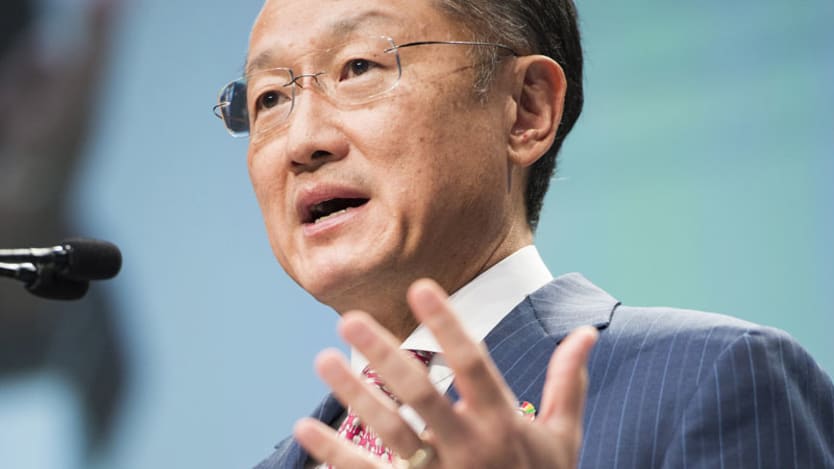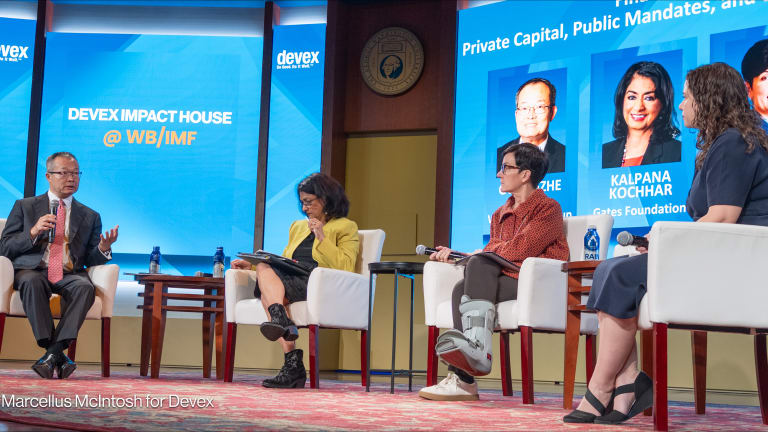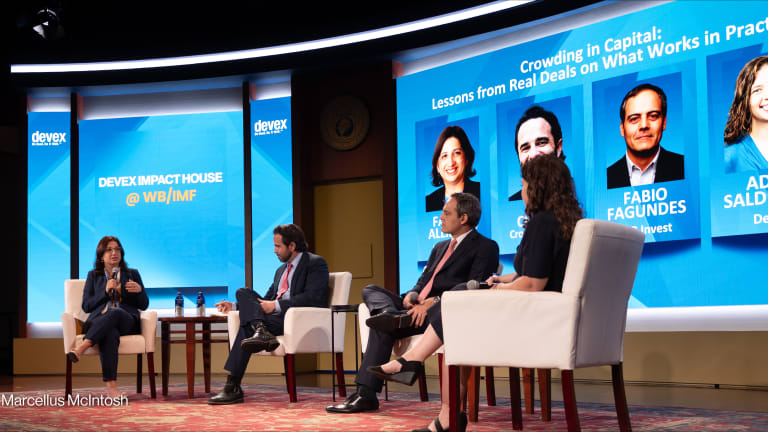World Bank President Kim calls for a 'different and difficult conversation about development finance'

The World Bank is moving away from traditional project finance and instead taking on the role of “honest broker” and “strategic advisor” to channel and multiply private investment going to developing countries, but it will not mean a return to the “bad old days of privatization,” the institution's president said.
During a speech given to students at the London School of Economics yesterday, Jim Kim called on development finance institutions, including the World Bank, to stop competing with each other to finance projects, and instead focus their efforts on making projects and countries more attractive to commercial investors. DFIs should then attach their “special skills” and “knowledge” about how to implement projects in developing countries to that commercial capital, he said.
If successful, such an approach will free up scarce public resources in developing countries, which can then invest more in building resilience against shocks such as famine, responding to emergencies such as the current global refugee crisis, and investing in their own people to stop child stunting and prepare for the automation shift and the digital age, Kim said.
“We believe that everyone in the development community has to move in this direction ... this is a fundamental shift in our conception of who we are. In many instances … DFIs have competed with each other to finance projects especially the low-hanging fruit project that the the private sector could finance on commercial terms ... for too long our first thought was how can we get the loan or grant out the door,” Kim said.
“We need to have a different and difficult conversation about how we approach development finance,” he added.
Kim, who will begin his second five-year term as president in July, made the comments ahead of next week’s World Bank Group-IMF Spring Meetings, and warned that DFIs such as the World Bank will need to move fast in the face of “rising aspirations” among the poor, which if left unsatisfied, could lead to conflict and violence.
Changing the way the World Bank does development finance will require a change in its “identity,” the group’s leader said.
“We need to have a different and difficult conversation about how we approach development finance.”
— Jim Kim, World Bank president“We [also] have to change how we see ourselves. Right now we see ourselves as a lender … as an investor … directly financing projects and working towards specific policy goals … but we have to change and think of ourselves now as strategic advisors, honest brokers who link capital looking for a greater return to countries looking to achieve their higher aspirations,” he said.
More specifically, to effectively “crowd in” private capital, Kim said DFIs will need to adopt new principles, including constantly asking whether a project being considered could be financed by the private sector, and if so, backing off. But this will only work if all multilateral and bilateral institutions agree to do the same, he said.
Secondly, Kim said the World Bank will need to focus more of its efforts on encouraging upstream regulatory or policy reforms, to alleviate market failures which might be putting off commercial investors.
As part of this, the World Bank plans to use its concessional finance in more innovative ways to mitigate risk, and also make use of blended finance instruments to support private sector investment, Kim said. The bank is already doing this through a $2.5 billion Private Sector Window, which includes a risk mitigation facility to provide project-based guarantees, and also a local currency facility to mitigate currency risk, he said.
See related stories:
► Pandemic response a cycle of 'panic and neglect,' says World Bank president
► World Bank aims to boost knowledge of African development
▶ African cities will remain 'closed to the world' without reform and investment, World Bank says
The bank’s Global Concessional Finance Facility, a $1.5 billion financing platform launched last year to offer concessional financing — below market rate loans — to low and middle income countries hosting refugees, is another example of innovative use of concessional financing by the DFI.
However, changing the way the World Bank does business will not be easy, Kim admitted, recalling how previous reforms initiated by the president were met with strong opposition from staff, as Devex reported.
“It will be very difficult to change fundamentally global architecture if we want to move in this direction — we are not there yet, but this is something we have to do, and at the World Bank group we know we have to start with ourselves,” he said.
In terms of how the bank is managed, achieving this new direction will mean changing the incentives structure, so that staff are rewarded if a project becomes commercially viable and thus doesn’t require support from the bank — something the organization does not currently adequately track, define or celebrate, Kim said.
To address this, the institution is developing a system to better track where staff have enabled the direct or indirect mobilization of private capital, and it is also thinking about ways to reward staff who assisted client countries through advice, for example, rather than providing loans, Kim said.
The World Bank will also need to ensure closer collaboration across its group of institutions, including the private sector arm, the International Finance Corporation, the Multilateral Investment Guarantee Agency, and its other lending arms, the president said.
In conclusion, Kim called on the audience at the LSE “to act with the speed and the scale that these times require, and fundamentally change development … Aspirations are rising all around us; let’s see if we can raise our own to meet them.”
Stayed tuned to Devex next week for our live coverage and analysis of the World Bank annual Spring meetings. Subscribe to The Development Newswire to receive the latest from the world’s leading donors and decision-makers — emailed to you free every business day.
Search for articles
Most Read
- 1
- 2
- 3
- 4
- 5








